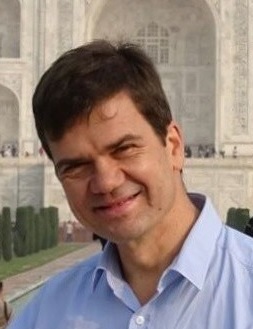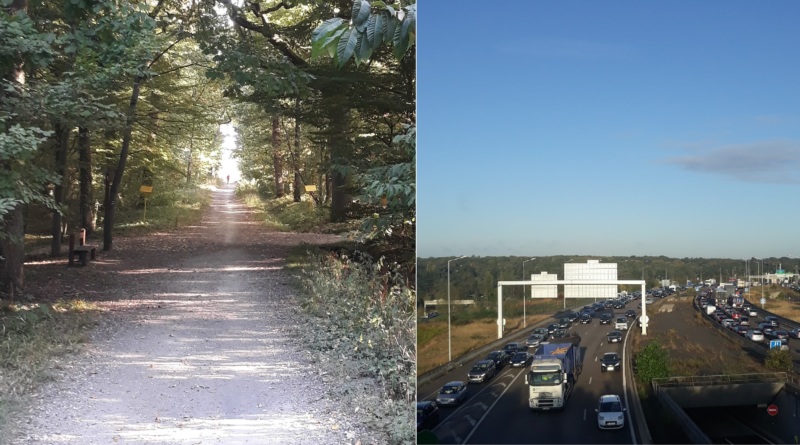BBC & Business Class: Rejoicing And Irony Of Sustainable Development

Life reveals tasty ironies sometimes and offers moments of true rejoicing. So today, I was listening to a geo-economic podcast on the BBC, via my Internet-radio. Today, the theme was – guess what? – sustainable development, with a journalist who, from data he had gleaned here and there, predicted the apocalypse, or even hell (the word was used several times in its Latin form, inferno) for our grand-children, around 2100. In short, we were emitting too much carbon dioxide and too many particles, we were destroying coral reefs too quickly, we were eating too much meat and it was high time to go on an ecological diet, otherwise we would end up in the flames of Gehenna, in the literal sense of the term (I could even, as we speak of heat, add an h, which would give the word therm from the Greek thermos, which means hot). And since we are talking about public baths, the journalist was also predicting, by the end of the century, a sea rise of fifty meters ! It makes me shudder, especially when I think that French elementary schools no longer give swimming lessons …
Well alarmed by these apocalyptic forecasts, I decided to listen to the advertising that the BBC has been putting out for several weeks in the beginning of its broadcasts [1]under podcasts format adapted to the wifi-radio: thanks to this excellent radio station, the BBC, I lived a true ironic happiness: the ad, made for a French audience, was promoting the business class of a large French-Dutch airline. What, for half an hour, we are warned about the fire of the sky due to fall over us: the global warming! We are promised that after today’s speach of a psycho academic specializing in sustainable development, another teacher, this time of moral ethics (yes, yes, you read correctly) will come tomorrow and preach us! And all this just after having encouraged us to fly in business class?!
I am thanking again the BBC for allowing me to literally enjoy this moment of rare contradiction, of so obvious antinomy or, in other words, of such a brilliant paradox, like fireworks lighting our skies with more and more multicolored flames.
So, of course, do not make me say what I did not say! Yes, we are seeing the climate changing, and probably in an accelerating rhythm. Yes, over a period of several decades, the average temperature curves of Marseille have become those of Lyon. Yes, Nancy had several weeks of snow in the 1950s when today, if it snows, cumulatively speaking, a week per year, that is wonderful! Yes, the Mer de Glace (sea of ice) in the Mont Blanc mountain [2]Highest peak in the European Alps is likely to turn into a simple lake. At the other hand, at the time of the dinosaurs, the rate of CO² in the air was three times higher than today and the territory of the Ile-de-France was experiencing a tropical climate. During the last glaciation, which ended around -20,000 BC, alpine glaciers went as far as Lyon and between this period till the XVIIth century, those glaciers receded althought industry, during Louis XIV’s reign, was not very developed, was it?. More recently, I recall that Greenland does not mean Icy Land. Finally, it would be interesting to know how many tons of CO² will have been emitted in order to organize the just passed United Nations summit[3]23rd United Nations Summit, New York.
Possible solutions lie in new energy technologies, such as nuclear fusion, hydrogen through wind and solar systems (in respect of land and maritime development) and, perhaps, in the way of showing its social success. As long as our heads of state or our CEOs will use, for their personal needs, jumbo-jets, or, for the most modest, business jets, from the airports of Orly, Bourget or Vélizy-Villacoublay[4]all those airports are located in Paris region and are used by the French Government and CEOs, the dynamic given by our elites will be that social rising mandatorily correlates with greenhouse gases emissions[5]CO² emissions from global air traffic are in the order of 3% of total GHGs in 2014 but this percentage could increase with the very strong development of the commercial air fleet in the world.
Perhaps we could even dream that the next generation centers more its happiness on being rather than having, more on being happy than having pleasure, more on being in relation with one’s loved ones than having Likes on social networks[6]which can be quite usefull sometimes by the way[7]DELUZARCHE Céline, “Transport et CO² : quelle part des émissions?” (transport and CO²: which emission percentage?), Futura Planète, [2018?], [vu le 24/09/2019]. Available at: https://www.futura-sciences.com/planete/questions-reponses/pollution-transport-co²-part-emissions-1017/[8]GRACIA Mathilde, “Quelles sont les véritables émissions de CO2 du trafic aérien ?”(What are the true CO² emissions from air traffic?), Le Monde, le 18 juin 2015. [vu le 24/09/2019]. Disponible sur : https://www.lemonde.fr/climat/article/2015/06/18/l-aviation-civile-en-roue-libre-sur-les-emissions-de-gaz-a-effet-de-serre_4657266_1652612.html.
(Cover photos: Versailles Forest, North of Jouy-en-Josas, and A86 highway, between Jouy-en-Josas and Vélizy-Villacoublay, Paris Region. BdF, September 24th 2019).
[mapsmarker marker=”29″]
Références

